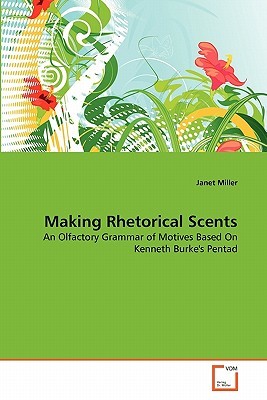
- We will send in 10–14 business days.
- Author: Janet Miller
- Publisher: VDM Verlag
- ISBN-10: 363934412X
- ISBN-13: 9783639344127
- Format: 15.2 x 22.9 x 0.5 cm, softcover
- Language: English
- SAVE -10% with code: EXTRA
Reviews
Description
Scent is inherently persuasive, but the language of scent is largely missing from rhetoric's vocabulary. This is because language cannot express the "truth" of an odor. Identification of odor as substance is dependent on consubstantiality between the author and reader. We instead describe smells using metaphorical language, or by invoking episodic memories and emotional reactions. In this way, scent is dramatistic. In order to consider the possibility of a grammar of scent beyond metaphor, the author develops an olfactory pentad (Sniff, Context, Emanation, Odor Object, and Response) by applying the framework of Kenneth Burke's dramatistic pentad. In this way, scent is exposed as a powerful rhetorical substance separate from human motive, but motivating in and of itself. The author then explores implications for a rhetoric of scent beyond the literate tradition.
EXTRA 10 % discount with code: EXTRA
The promotion ends in 19d.05:29:43
The discount code is valid when purchasing from 10 €. Discounts do not stack.
- Author: Janet Miller
- Publisher: VDM Verlag
- ISBN-10: 363934412X
- ISBN-13: 9783639344127
- Format: 15.2 x 22.9 x 0.5 cm, softcover
- Language: English English
Scent is inherently persuasive, but the language of scent is largely missing from rhetoric's vocabulary. This is because language cannot express the "truth" of an odor. Identification of odor as substance is dependent on consubstantiality between the author and reader. We instead describe smells using metaphorical language, or by invoking episodic memories and emotional reactions. In this way, scent is dramatistic. In order to consider the possibility of a grammar of scent beyond metaphor, the author develops an olfactory pentad (Sniff, Context, Emanation, Odor Object, and Response) by applying the framework of Kenneth Burke's dramatistic pentad. In this way, scent is exposed as a powerful rhetorical substance separate from human motive, but motivating in and of itself. The author then explores implications for a rhetoric of scent beyond the literate tradition.


Reviews